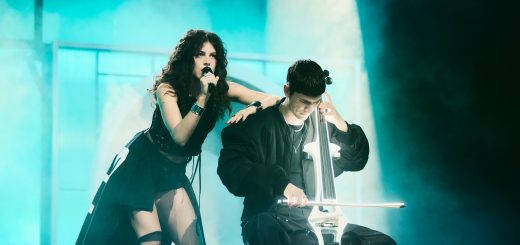ARD parts ways with Stefan Raab ahead of Eurovision 2026 — “It just didn’t feel right to continue”

After a year of renewed hype and headline-grabbing drama, Germany’s Eurovision experiment with Stefan Raab is officially over.
In an interview with DWDL, Christine Strobl, Program Director of ARD, confirmed that the broadcaster would not continue its collaboration with Raab and RTL for Eurovision 2026. The move follows Germany’s 15th place at Eurovision 2025 in Basel, despite a surge in domestic interest and solid viewing figures.
“We wanted to win — and we didn’t”
Speaking candidly, Strobl explained that the cooperation was always tied to one very simple goal: victory.
“We said: we’re entering into this partnership because we want to win. Now, a year later, to say: ‘Okay, it didn’t work out, we’ll just keep going anyway,’ doesn’t feel good.”
The collaboration between NDR, RTL, and Raab — the creative mind behind Germany’s 2010 Eurovision triumph with Lena’s “Satellite” — was credited with revitalising public interest in the contest. But ultimately, the partnership was never intended as a long-term arrangement.
Responsibility for Germany’s Eurovision journey now lies with SWR, which has decided, in agreement with ARD, not to work with any other broadcaster “for the time being.”
A possible reunion — but with a twist
Despite the split, Strobl didn’t rule out future collaborations. In fact, she hinted that Germany’s Eurovision strategy remains a work in progress:
“I think we’d have to come up with something new if we were to revisit the topic of cooperation at the ESC in the future, but that’s absolutely conceivable and possible.”
Translation: the door isn’t shut — it’s just being quietly left ajar.
The search for Germany’s next Eurovision act
SWR has already opened submissions for artists and songwriters hoping to represent Germany in Vienna 2026. Entries are open until 22 October, with a multi-stage selection process designed to emulate Eurovision-style voting.
First, the SWR editorial team will shortlist the strongest songs based on “artistic and vocal quality.” Then, the chosen entries will be evaluated by international jurors and public voters across Europe to simulate the Eurovision scoring system.
From that process, a final shortlist will emerge — and the winner will be crowned during a national final in late February, broadcast live on Das Erste .
A fresh start, or déjà vu?
Germany’s decision to go solo marks another pivot in its long-running quest for Eurovision redemption. After years of trial, error, and varying degrees of national embarrassment, the country appears to be seeking balance between creative freedom and strategic focus.
Whether that means another Satellite moment or another Zero Points Saga — only Vienna will tell.
Source: DWDL


